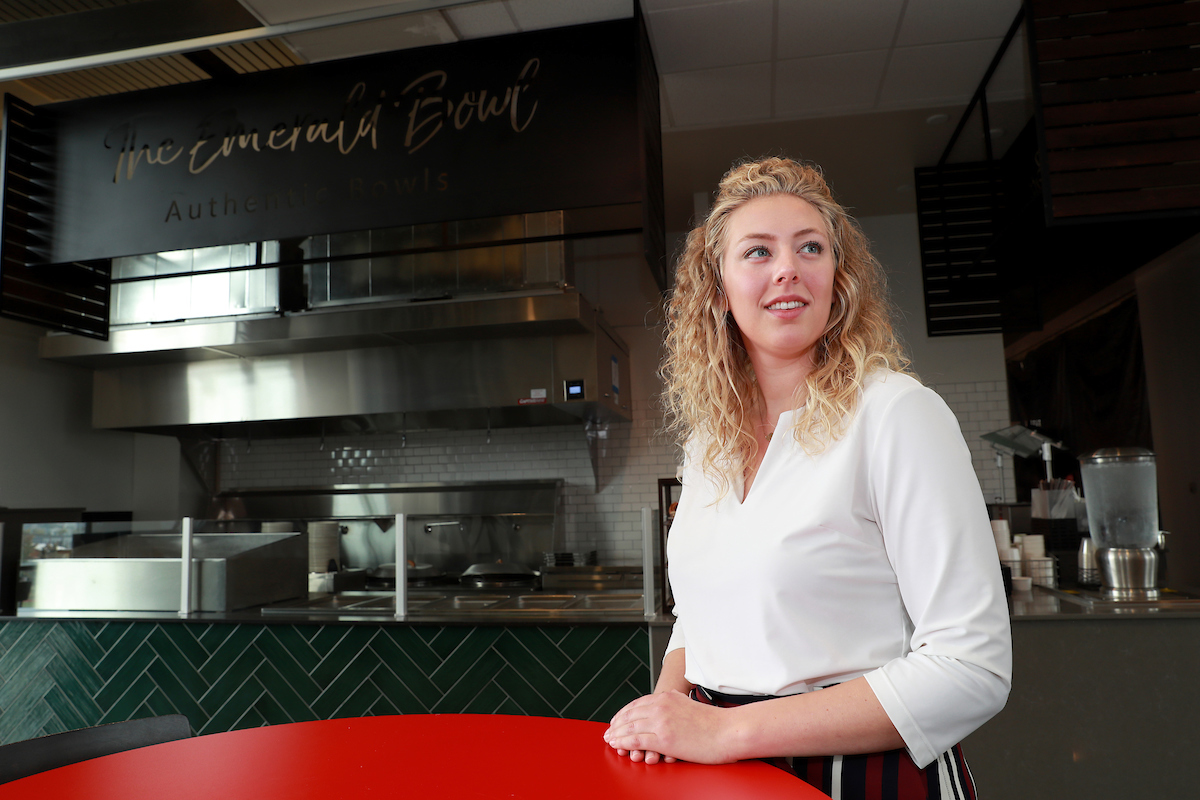Healthy Eating, Healthy Being
Chartwell's Campus Dining
Seattle University Magazine recently sat down with Chartwell's Wellness & Sustainability Manager Brianna Ballard to learn more about this new role, the intersection of nutrition and sustainability and more.
What does a Wellness and Sustainability Manager do?
Ballard: My job covers a broad spectrum, including allergen management, nutrition consultations to help establish healthy lifestyles and build lifelong habits and group presentations on a variety of health topics. In terms of sustainability, I provide guidance on sorting waste properly, work with Redhawk dining staff to promote the use of real plates at dining facilities and train staff to reduce the production of food waste when preparing menu items. From there, we measure and track all food waste data and partner with Seattle U’s Center for Environmental Justice & Sustainability and submit data to AASHE (The Association for the Advancement of Sustainability in Higher Education) to help create a benchmark for the nation.
What’s a common misunderstanding about nutrition, wellness and/or sustainability?
Ballard: Being healthy doesn’t have to take a toll on your happiness. Choosing a life of well-being should provide more benefits than disadvantages. Placing severe restrictions ultimately hinders your quality of life—it’s also difficult to sustain in the long run.
What inspired you to pursue a career as a registered dietitian?
Ballard: I’ve always found inspiration in Hippocrates’ quote, “Let food be thy medicine . . .” I also enjoy helping and inspiring others to be their best by encouraging the idea that the consumption of food can promote holistic well-being. I try to nurture that thinking in my own life as well.
What are your suggestions or advice for maintaining a healthy balance—both dietary and overall wellness—especially in times of stress?
Ballard: Feeling stressed and short on time are huge barriers to achieving wellness. Rather than trying to attain perfection, understanding and prioritizing your health goals are the best ways to help maintain balance. Consider creative ways to take care of yourself. Maybe you don’t have time to cook an entire meal, but you can seek quick options that are in your best interest.
Food insecurity is a major issue for campuses nationwide. In collaboration with the Seattle U Food Pantry, what is Chartwell’s doing to address this?
Ballard: Chartwell’s engages with campus to create awareness of the pantry and also hosts a fundraiser at the end of every quarter to donate dining dollars toward dining cards distributed by the food pantry. We’re excited to soon launch a food recovery program with the on-campus food pantry. Surplus food from Redhawk Dining will be repackaged and distributed to the pantry for students to enjoy. We’re also currently building a team of student volunteers to lead this initiative and become a part of the food recovery network.
What’s your go-to for a simple, nutritious and affordable meal?
Ballard: We could all stand to have more vegetables in our lives, so my pick are zoodles—zucchini noodles made with a spiralizer. They have just been added to Revolution, the pasta bar at Cherry Street Market.
What do you think sets Seattle U’s food offerings or Chartwell’s apart from the standard university food options?
Ballard: It’s the comprehensive approach—our offerings are guided by the campus community. We strive to provide an option for everyone to feel satisfied. Not only are we engaging with campus, but also we’re striving to increase nutritional knowledge about their choices.

